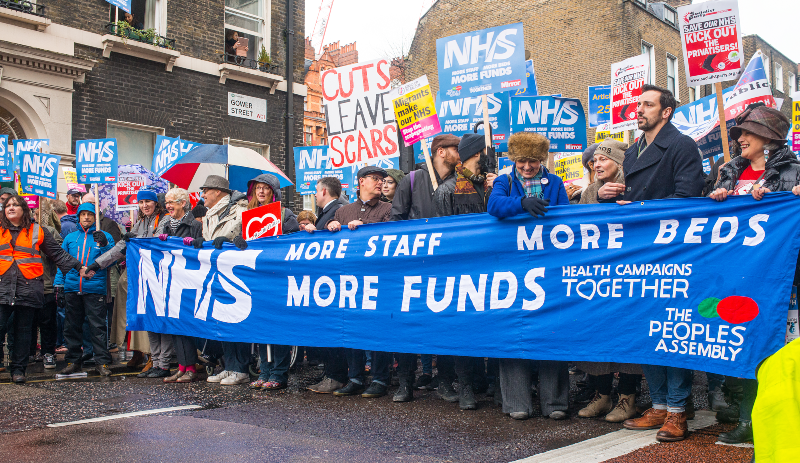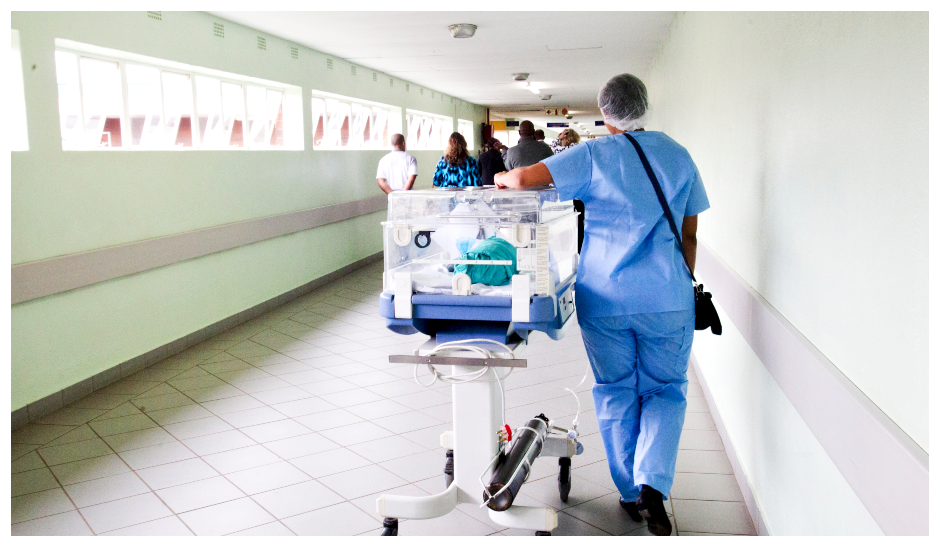What the #COVID19 outbreak is teaching us is simply how the workers classed as ‘low skilled’ by the government are now the real ‘Most Valuable Players’ (MVPs) crucial to keeping the economy running – Coronavirus.
As the Coronavirus pandemic escalates and millions of Britons are told to isolate themselves in their homes, Shannon Summerfield in Cardiff is going to work.
The 20-year-old is a support worker for Dimensions, which cares for 3,500 people across the UK.
“The ladies are quite confused at the moment,” Summerfield says, after having worked a 25-hour shift.
She looks after four female residents, with needs such as autism, cerebral palsy and dementia, in a supported living setting.
“We’ve tried to explain what’s happening as best we can because we’re trying to keep them indoors and self-isolated. They’re quite vulnerable as it is.
“We’ve been trying to keep them occupied, doing arts and crafts, little discos and baking,” she adds. “They are quite upset they can’t see their families but we try to make Skype calls as much as we can. And we’ve done emergency shops just in case the houses go into complete lockdown.”
Summerfield is just one of those workers left without a choice when it comes to protecting herself from the pandemic – her residents come first.
But just a few weeks ago, she and many of her colleagues were deemed “low skilled” under government proposals to limit immigration post Brexit.
In a move described by the trade union Unison as “a disaster” for the social care sector, the government proposals included a points-based system and a salary threshold of £25,600 for migrants seeking work in the UK.
“We intend to create a high wage, high-skill, high productivity economy,” the Home Office said when it announced the changes.
The average hourly rate for a care worker in 2019 was £8.10 an hour, according to the workforce development body Skills for Care.
Yet in these unprecedented times, social carers have been recognised as one of the key workers who are critical to keeping the country operating.

They include those who work in healthcare, education, public service broadcasters, food production and distribution, transport, and utilities, among others.
As well as NHS workers who are working tirelessly to look after the sick, there are teams of supermarket workers, stacking shelves through the night and working long hours on the checkouts; there are cleaners scrubbing factories, hospitals and offices; there are delivery drivers, bin men and royal mail staff, all tirelessly doing their bit to keep the country together.
Some supermarkets have struggled to cope with unprecedented demand, as anxiety about an upcoming lockdown and dwindling supplies have led to panic buying and stockpiling in some parts of the country.
Retailers including Asda, Tesco and Sainsbury’s have imposed limits on the number of items that can be purchased and allocated specific opening hours to the elderly and NHS staff so that they can buy supplies in high demand.
In a wave of redundancies after the government closed all pubs, restaurants, theatres and cafes and urged people to stay home, it’s supermarkets and delivery firms that are adding to their workforce.
Morrisons, for example, is recruiting 3,500 pickers, drivers and distribution staff to meet skyrocketing demand for online deliveries.
In West Sussex, one supermarket express worker who asked to remain anonymous, says the past two weeks have been very hectic, with the biggest priority “to fill, fill, fill!”
“The biggest challenge is the stock,” she adds. “With all of the panic buying going on, we are simply not getting enough stock delivered.
It’s pretty bad for morale when you’ve stacked so many shelves and then just hours later the shop is empty. We’re also worried about facing abuse from customers … [but so far] in our shop the customers have all been understanding and lovely.”
She hopes this will mark a sea change in society looking down on people like her.
“Obviously it’s not great being called a low skilled worker. We all work so hard and sometimes we feel under appreciated. I think we’re all hoping that once this blows over, people will have a lot more respect for us.
“We’re scared too but we don’t want to show it as we’re trying to remain calm and give good service.”
In the House of Commons on Monday, the Conservative MP for St Austell and Newquay, Steve Double said: “One of the things that this current crisis is teaching us is that many people that we consider to be low skilled are actually pretty crucial to the smooth running of our country and are in fact recognised key workers.”
He went on to call on the home secretary Priti Patel to review the planned points-based immigration system to “reflect the things we’ve learned during this time”. She conceded all aspects of the new system are under review.
“I’ve had so many people say to me, ‘you’re doing so well because of what’s going on’,” Summerfield says. “I can’t work from home and most of my family can’t because we all work in the care sector.
“It is quite hard on all of us but we’re just trying to do our jobs like normal. We shouldn’t only be recognised [as valuable] when something bad is happening.”
Written By: Emma Sheppard – a freelance journalist and editor covering business sectors, current affairs, lifestyle and travel – @Emmalousheppard
Images Copyright – Unsplash / Shutterstock
More Stories

The next generation inventors ‘creating’ to fix our health and the planet








